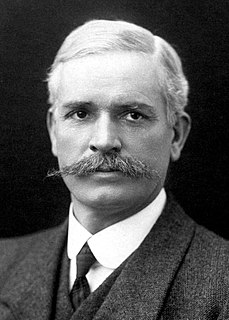| ||||||||||
| ||||||||||
| ||||||||||
The 1932 Labour Party leadership election took place after the defeat of the Labour Party in the 1931 general election and the defeat in his own constituency of the party leader, Arthur Henderson. Labour was reduced from 287 members to 46 members; George Lansbury was the only senior member of the Labour leadership to retain his seat.

The 1931 United Kingdom general election was held on Tuesday 27 October 1931 and saw a landslide election victory for the National Government which had been formed two months previously after the collapse of the second Labour government. Collectively, the parties forming the National Government won 67% of the votes and 554 seats out of 615. The bulk of the National Government's support came from the Conservative Party, and the Conservatives won 470 seats. The Labour Party suffered its greatest defeat, losing four out of five seats compared with the previous election. The Liberal Party, split into three factions, continued to shrink and the Liberal National faction never reunited. Ivor Bulmer-Thomas said the results "were the most astonishing in the history of the British party system". It is the most recent election where one party received an absolute majority of the votes cast and the last UK general election not to take place on a Thursday, and would be the last election until 1997 in which a party won over 400 seats in the House of Commons.

Arthur Henderson was a British iron moulder and Labour politician. He was the first Labour cabinet minister, won the Nobel Peace Prize in 1934 and, uniquely, served three separate terms as Leader of the Labour Party in three different decades. He was popular among his colleagues, who called him ‘Uncle Arthur’ in acknowledgement of his integrity, his devotion to the cause and his imperturbability. He was a transitional figure whose policies were, at first, close to those of the Liberal Party. The trades unions rejected his emphasis on arbitration and conciliation, and thwarted his goal of unifying the Labour Party and the trade unions.

George Lansbury was a British politician and social reformer who led the Labour Party from 1932 to 1935. Apart from a brief period of ministerial office during the Labour government of 1929–31, he spent his political life campaigning against established authority and vested interests, his main causes being the promotion of social justice, women's rights and world disarmament.
As the only candidate to stand, Lansbury was elected Leader unopposed by the Parliamentary Labour Party. [1]
In UK politics, the Parliamentary Labour Party (PLP) is the parliamentary party of the Labour Party in Parliament: Labour MPs as a collective body. Commentators on the British Constitution sometimes draw a distinction between the Labour Party and the Conservative and Liberal parties. The term Parliamentary Labour Party refers to the party in Parliament, whereas the term Labour Party refers to the entire Labour Party, the parliamentary element of which is the PLP.














